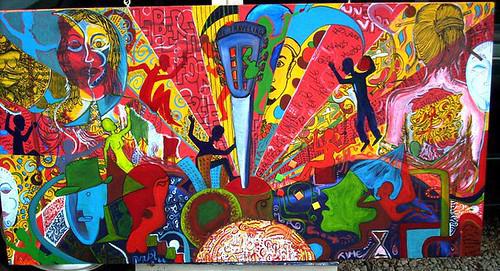
Ignacio Martínez Egea (Wikimedia Commons)
Ecologies of Resistance: A Study of Environmental Justice Narratives from the Extractive Economies of the Global South
How do we tell the stories of the land through the struggle and resistance of its inhabitants? How should one belong to and empathize with an environment that is not pristine and green? How should we reimagine our intimacy with violated environments?

MACSD (Wikimedia Commons)
The narratives from the Global South tend to depict the environment differently from the romanticized views celebrated in popular nature-writings from the Global North. This depiction aligns better with the definition of environment as put forth by environmental justice scholars, as the place where we live, work, learn and play. This radical reimagining of the environment is rooted in the everyday realities of the Global South blurs the nature/culture binary. It depicts the human and more-than-human lives as entangled with the environment through a complex web of inter-relations. Primarily set in extractive zones – created through colonization and neoliberal land grabbing and maintained to cater to the demands of the global market –, these narratives from the peripheries depict the production relations and unequal environments created by the capitalist-world ecology. The texts succeed in articulating the depth and scale of ecological violence that is otherwise ungraspable. My project analyzes texts that attempt to reimagine the environment as an active agent that affects and is affected by the capitalist world system and locate the resistance movements against the exploitative forces within a wider political framework of class struggle and unequal distribution.
Lakshmi Dilipkumar is a Ph.D. student at the Wissenschaftszentrum Umwelt, Augsburg University. Contact: lakshmi.dilipkumar@wzu.uni-augsburg.de

